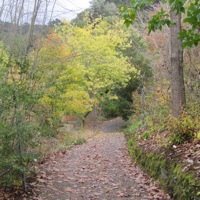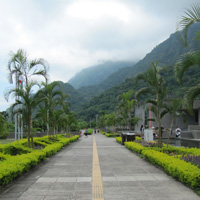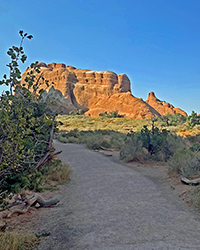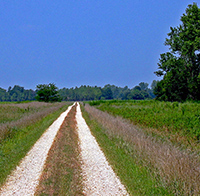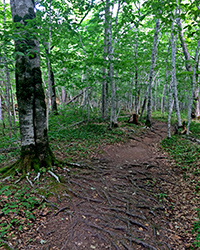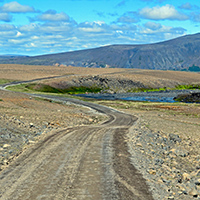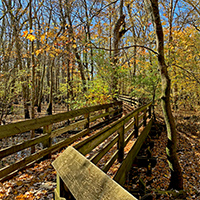OBJECTIVES By the end of this session you will be able to:
|
Tasks for this session
Before the start of our thirteenth class meeting:
Read
Read pages 206-295 in Dreams from My Father by Barack Obama. This includes chapters 11-14. But, if you want, you can skip chapter 11 (pages 207-222), as only the first few pages (207-212) are relevant, and none of the chapter is about community organizing. So, just reading chapters 12-14 is fine.
Watch and Listen
There are no assigned videos or podcasts or lectures.
Tasks
Activity One
Our class for the 12th session is on Zoom or/and the classroom. And yet, you can put much of your effort into our discussion board on Canvas, posting in response to the 11th and 12th session discussion questions.
Activity Two
Read pages 206-295 in Dreams from My Father. (or at least read pages 223-295 if you want to skip chapter 11)
Activity Three
Continue working on your third experiential learning assignment. Be active in your participation with a group, observe the group, and think about how what we are learning in this class could be applied with the group you are active with, and write in your learning journal about this.
Activity Four
Work on your Grand Challenges Paper. You should finish a first draft, and share it with your peers.
Activity Five
Finalize your presentation (4-6 minutes introduction to what you are proposing and analyzing in your Grand Challenges Paper).
Activity Six
For the fifth experiential learning assignment, continue to study human rights and the specific human rights issue where you will be doing advocacy. Write about the process in your journal.
In 2021, the writing groups are as follows:
Share a draft of your Grand Challenges Paper with peers in your group by the end of the 12th session, and then in the 13th session you should give feedback and editing suggestions, so that people will be able to revise their papers in the 14th sessions.
Sanguine Group:Paiton Fornoff, Storm Casad (Ensure Healthy Development...), Yolanda Taylor (Ensure Healthy Development...), and Nataly Garcia (Ensure Healthy Development...); pforn2@uis.edu, scasa2@uis.edu, ytayl2@uis.edu, ngarc4@uis.edu.
Copper Group:David Berkley, Kadesia Currie (Build Healthy Relationships...), Lynette Ware (Build Healthy Relationships...), and Sinclaire Baker (Build Healthy Relationships...); dberk4@uis.edu, kcurr6@uis.edu, lware4@uis.edu, sbake6@uis.edu.
Vert Group: Jared Faires (Reduce Extreme Economic Inequality), Jenny Sharp (End Homelessness), Ricky Brown (End Homelessness), and Sundae Johnson (Reduce Extreme Economic Inequality); jfair6@uis.edu, jshar4@uis.edu, rbrow26@uis.edu, sjohn96@uis.edu.
Sable Group: Marcey Otto (Advance Long and Productive Lives ), Jessica Perez (Close the Health Gap or Promote Smart Decarceration), Janet Rodriguez (Advance Long and Productive Lives), and Sophia Vosnos (Advance Long and Productive Lives); mhods2@uis.edu, jpere79@uis.edu, jrodr207@uis.edu, svosn2@uis.edu.
The schedule for a class meeting for sesion 12, looks like this:
1. Check in.
2. Discuss any macro practice that has been in the news.
3. We would discuss how Barack Obama's career as a community organizer illustrates some of the topics we have learned about in Michael Jacoby Brown’s book Building Powerful Community Organizations.
4. We will share reports from the field, where you tell us about your experiences in the experiential learning assignments.
5. We will share your thinking on the Grand Challenges you are studying. What tasks are you considering, and what tactics and strategies are you imagining would be helpful? It is important to have limits and focus, and this disucssion would help people see how to write the paper, with a narrow focus.
6. We would discuss Salt of the Earth.
7. I would go over the process of writing a Grand Challenges paper. I would emphasize the importance of taking what you have learned from this class and from Michael Jacoby Brown, and using that in parts of your paper.
Session Time Budget
3h 30m |
Canvas Discussion Board participation |
2h 40m |
Pages 207-295 in Dreams from My Father by Barack Obama. This includes chapters 11-14. |
3h |
Work on your Grand Challenges Paper. Finish a draft, and share it with a classmate. |
1h 15m |
Continue your participation in a group or organization so that you can use this participation to inform your thinking with practical applications of what we are learning in this class. You probably should be writing about your experience in your journal by now. This is your Third Experiential Learning Assignment |
1h 15m |
Continue working on your human rights advocacy. |
1h |
If you haven’t finished your first, second, or fourth experiential learning assignments, try to get those finished. |
Discussion Board Questions (Activity One)
Go into Canvas, log in, and respond to the discussion questions for this session.
These are:
DQ 12-1: Check In
Check in for the twelfth week of the semester. Tell us what is going on. Share something you have done in the recent days or weeks that you feel good about.
DQ 12-2: Changing the Rules of Power.
Obama says that Rafiq “was less interested in changing the rules of power than in the color of those who had it and who therefore enjoyed its spoils.” Obama goes on to describe how “Black Power” had been a call to arms and a demand for significant change when Malcom X had used the phrase, but was now the sort of thing Malcom opposed: a slogan to feed lies and fantasies, and a tool for African-American politicians to win support they didn’t earn by using divisive racial rhetoric and spreading conspiracy theories (see pages 202-203).
If we are trying to organize people for power, we will need to build coalitions, and those coalitions will be diverse. So, it is clear that any sort of racial resentment or tolerance for using race to divide people can weaken an organization’s ability to build coalitions (and thus, reduce its power).
What do you think we can do as social workers in our practice to: 1) diminish inter-racial and inter-ethnic suspicion and a sort of in-group desire for “the spoils” to be largely taken by one’s own in-group; 2) replace the desire to get more of “our people” at the top of the power pyramid and instead create more democratic systems where power is not so concentrated? Think about what we can do discussing a group’s values; how we can influence recruitment; and how we can build cross-racial alliances and friendships? What will it take from us?
DQ 12-3: The Mayor’s Office of Employment and Training
What were some of the things that made a success of the meeting with Cynthia Alvarez? What had been differently and what about the event was different compared with the failure of the meeting with the police about gangs?
DQ 12-4: Marty
Marty has a couple insights that ring true. At one point he says, “That’s what ruins a lot of so-called community organizations out here. They start taking government money. They hire big, do-nothing staffs. Pretty soon, they’ve become big patronage operations, with clients to be serviced. Not leaders. Clients. To be serviced.”
Having read about leadership and community organizing, you know what he was angry about.
He also saw that the union was fighting a losing battle in trying to keep their jobs and pay at the steel plant. He saw that the sustainable long-range welfare of the unionized workers and the community would be helped if the workers could arrange a buy-out of the steel plant, working with chuches and local banks to get investment to make it happen. But, people we not interested.
Marty is a tragic figure. When the job bank hadn’t brought much to the community (the money seems to have mostly gone to a community college that wasted the money), local people blamed him. (See especially pages 167-170).
Put yourself in Marty’s place. Instead of being old and tired, you are young and energetic? What would you do? How would you approach the problems differently?
DQ 12-5: Street Corner Meetings
Pages 173-174 describe how Will’s suggestion that they hold meetings on stree corners (on neutral turf) to increase engagement and assess the neighborhood turned out to work well.
Compare your own experience in your first experiential learning assignment to the meetings described by Obama. What are some of your insights into people’s willingness to get together to talk about their problem and have conversations about what they might do about them?
DQ 12-6: Asbestos
On pages 235-242 you can read about the success the DCP had with the Chicago Housing Authority in getting attention directed toward the Asbestos in Altgeld homes. Obama did all the things an organizer is supposed to do, but it seems he was lucky in the timing of the press when they arrived at the Housing Authority, just as Ms. Broadnax was trying to throw them out.
What are some of the things Obama did that contributed to the success? What do you think would have happened if the press had not arrived?
DQ 12-7: The Church.
Describe some of the dynamics Obama faced when he was trying to get churches more involved in improving the community. What would you do to get more church support? Why do you think it is so important to get religious congregations involved in community improvement?
DQ 11-8: Goals and Values
Let’s consider four occasions when people used stories or talked about core values and goals.
1) On pages 171-172 when Obama pointed out a window and some children and asked the tired DCP leaders “what is going to happen to those boys?”
2) On pages 177-178 when Will told a story about growing up in Altgeld, and then others shared their stories.
3) On page 234 when Linda said she would be going to college and showed an album of clippings from Better Homes and Gardens.
4) On page 248 where Sadie says she and her husband are going to “just concentration on saving our money so we can move outta here as fast as we can.”
Explain in your own words what themes you notice in the goals and values of these people in Altgeld. How did Obama use these as an organizer? What are some things you would do with these goals and values if you were an organizer in a place that people all wanted to leave?
DQ 11-9: Obama, Open Thread
This is an open thread to discuss anything you want ot talk about related to Dreams from My Father.
Interesting Stuff To Explore (optional stuff)
- You may want to examine some examples of Grand Challenges Papers. Here are some, available in Word format and Pages format.
- Obama was not actually trained in social work, but his community organizing experience seems to have gone fairly well. As you know, he eventually went into politics, become a State Senator in the Illinois General Assembly (he wrote Dreams from My Father while serving in Springfield in the State Senate). He served as a senator in the US Senate, and then as President of the United States for two terms. Other persons with social work backgrounds have gone into politics. The British Prime Minister for the Labour Party in the post-war period, Clement Attlee, had been a social worker. The NASW puts out a report on social workers in Congress.
Come to the next class ready.
Our 13th class is scheduled for November 16th. We will meet on Zoom or in the classroom for the 13th class period. Please come to class (in our classroom or on Zoom) prepared to present your ideas for your Grand Challenges paper on the 16th (our 13th meeting). Your formal presentation of your paper will be on our 15th class (November 30th), but you should be ready to talk about what you will be doing and proposing in our 13th session.
Remember to send out your draft of your Grand Challenges Paper to peers this week (possibly at the end of the week), and give feedback to peers next week.









